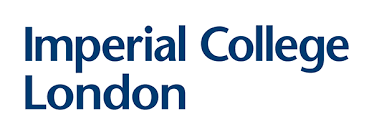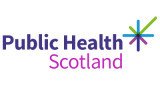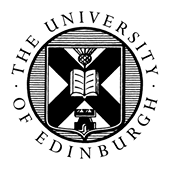NHS Greater Glasgow and Clyde (NHSGGC): Government against COVID-19 Non-funding Support
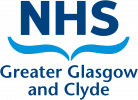
1.
NHS Greater Glasgow and Clyde, is partner of the project 'COVID-19 Genomics UK (COG-UK) Consortium'
https://www.nhsggc.org.uk/about-us/professional-support-sites/laboratory-medicine/laboratory-disciplines/microbiology-and-virology/west-of-scotland-specialist-virology-centre/
'COVID-19 Genomics UK (COG-UK) Consortium' is a collaboration between the NHS, Public Health England and other UK public health agencies, the Wellcome Sanger Institute, University of Cambridge and other academic institutions.
Project: COVID-19 Genomics UK (COG-UK) Consortium
Research Group: Cardiovascular Epidemiology Unit
Project Description: The COVID-19 Genomics UK (COG-UK) Consortium aims to increase the current capacity for SARS-CoV-2 genetic sequencing in the UK. This sequencing data will be used to understand the epidemiology and spread of the virus, and to monitor and evaluate interventions for COVID-19. SARS-CoV-2 genomic data will be integrated with NHS electronic health records and other existing genomic data to generate insights into susceptibility to COVID-19. From within the DPHPC, Professor John Danesh is a member of the COG-UK Steering Group, Dr Ewan Harrison will serve as the Scientific Project Manager and Dr Michael Chapman will lead the health informatics component.
Contributors:
Professor Rory Gunson, Consultant Clinical Scientist
Dr Alasdair MacLean, Clinical Scientist
Working with the MRC-University of Glasgow Centre for Virus Research
https://www.cogconsortium.uk/about/
2.
Project: 'ASTERIX: Adaptive Salvage Treatment based on Endotype-directed anti-viRals and Immunomodulation – an NHS framework to enable research and clinical trials'
Summary: Scotland is well-positioned to contribute to the urgent need for COVID-19 treatments. To do this we need to understand the disease and quickly bring new treatments to Scottish patients in trials. The ASTERIX framework will be integrated into clinical systems so that frontline staff are not burdened, using repurposed NHS infrastructure and staff. ASTERIX will allow us to learn quickly, while under huge clinical pressures, and streamline patients into trials. This learning will include how to treat COVID-19 and how to ensure that critical trial results are robust and relevant to Scottish patients.
Led by:
. Professor Kevin Blyth, NHSGGC, University of Glasgow
. Professor Iain McInnes, University of Glasgow
Co-investigator and institutions:
.Professor Andrew Biankin, University of Glasgow
.Professor Rob Jones, CRUK Glasgow CTU, University of Glasgow
.Professor Emma Thomson, MRC University of Glasgow Centre of Virus Research
.Dr Janet Scott, MRC University of Glasgow Centre of Virus Research
.Professor Carl Goodyear, University of Glasgow
.Clare Orange, NHSGGC Biorepository
.Dr David Lowe, National Clinical Lead for Digital Health & Clinical Informatics DHI, NHSGGC
.Dr Michael Murphy, Microbiology, NHSGGC
Funder
Chief Scientist Office
Total award
£17,000
3.
Project: 'Glasgow Early Treatment Arm FavIpiravir (GETAFIX)'
A randomized controlled study of favipiravir as an early treatment arm of ASTERIX in COVID-19 hospitalized patients.
Led by:
. Dr Janet Scott, MRC - University of Glasgow Centre for Virus Research (CVR), University of Glasgow
Co-investigators and institutions:
. Professor Emma Thomson, CVR, NHSGGC, University of Glasgow
. Professor Kevin Blyth, NHSGGC, University of Glasgow
. Professor Rob Jones, CRUK Glasgow CTU, University of Glasgow
. Professor Jim Paul, CRUK Glasgow CTU, University of Glasgow
. Dr Glen Burley, Department of Chemistry, University of Strathclyde
. Dr Samantha Carmichael, NHSGGC
Project summary
Favipiravir is used in Japan to treat influenza and can kill SARS-CoV2 in the laboratory4. The drug is safe in healthy volunteers and reached concentrations in the body needed to kill the virus. In China, 35 COVID-19 patients treated with Favipiravir recovered in 4 days compared to those treated with Lopinavir/ritonavir (45 patients) who took 11 days. We propose to treat COVID-19 patients with Favipiravir to see if it improves their chances of recovery without needing admission to intensive care, study what happens once Favipiravir is metabolised by the body, and check for drug resistance.
Funder
Chief Scientist Office
Total award
£156,510
4.
Project 'CARP: COVID-19 Advanced Respiratory Physiological Platform'
Led by
.Dr Chris Carlin, NRS Senior Investigator, NHSGGC
Co-investigators and institutions:
. Dr David Lowe, WoS Innovation Clinical Lead
. Dr Malcolm Sim, NRS Senior Investigator, NHSGGC
SME Partners:
. Dr Bruce Henderson, Forensic Physician / Owner Altair Medical
. Mr Paul McGinness, Director
. Dr Shane Burns, PhD, Lead Data Scientist StormID
Project summary
Patients with COVID-19 pneumonia are at risk for sudden deterioration. Altair wearable sensor measures breathing events to monitor patients at risk for opiate overdose. The Lenus platform (StormID) is established in NHSGGC for integration and analysis of clinical and sensor data in respiratory patients. We will re-orientate this to gather data about respiratory failure during COVID-19 and develop a dashboard with real-time respiratory monitoring and threshold alerts to monitor COVID-19 patients.
Funder
Chief Scientist Office
Total Award
£123,850
5.
Project: 'Viral and Immunological Correlates of Clinical Severity and Response to Anti-Viral Therapy for COVID-19'
Led by
. Professor Carl Goodyear, University of Glasgow
Co-investigators and institutions.
University of Glasgow:
Professor Massimo Palmarini
Professor Iain McInnes
Professor Brian Willett
Professor Emma Thomson
Professor Gerard Graham
Professor Paul Garside
Professor Naveed Sattar
Professor Andrew Biankin
Professor David Robertson
Dr Janet Scott
Dr Antonia Ho
Dr Thomas Otto
Dr Ana Da Silva Filipe
GGCHB NHS:
Dr Michael Murphy
Project summary: The clinical outcome of COVID-19 is ultimately determined by viral replication in the face of the host immunity. The latter can either control viral infection or exacerbate disease due to uncontrolled inflammatory processes that damages tissues. Hence, in order to establish the efficacy of antiviral therapies and determine whether stratification can aid clinical decisions in COVID19 patients, we need to identify correlates of disease severity and response to treatment. This proposal aims to fully determine the dynamic viral and immunological changes occurring during the different clinical stages of COVID-19. We will use a clinical trial for Favipiravir (GETAFIX, GLA3), an antiviral drug as our test case to develop our biomarkers but can roll this project out to support other trials within ASTERIX (GLA2).
Funder
Chief Scientist Office
Total award
£319,473
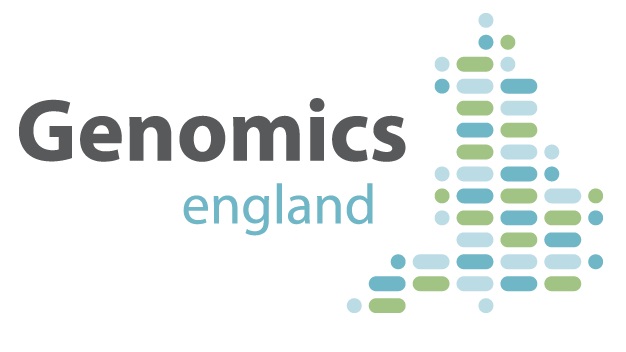

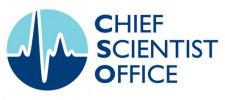

.jpg)
